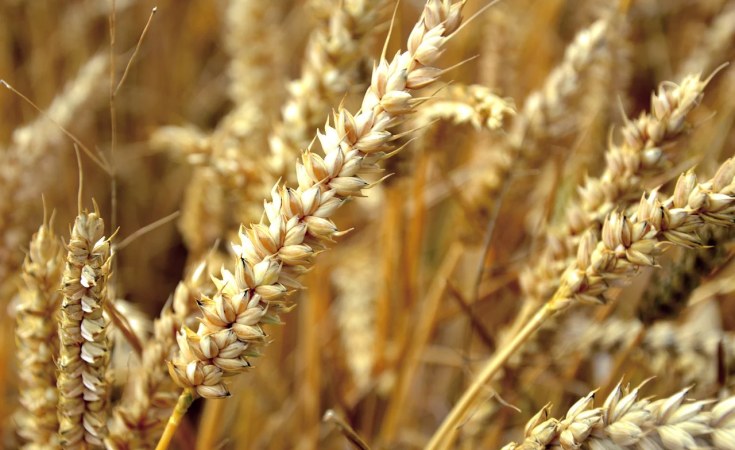African countries needing to fill the gap created by a lack of Russian and Ukrainian food imports must look outside the typical sphere of economic aid, says UN Assistant Secretary General Ahunna Eziakonwa after a five-day mission to Japan.
Eziakonwa, also the UN Development Programme (UNDP) regional director for Africa, spoke of the unique role government and private sector partners in Japan could play in support of African countries.
"Reinforced multilateralism and strong partnerships, including with Japanese government entities and private sector, will be decisive in supporting African countries' aptitude to respond to the new economic shocks caused by the war in Ukraine," she said.
Japan has played a strategic role to increase food security on the African continent, and aims to do more, according to the Japan International Cooperation Agency (JICA).
Rice revolution
"JICA is also concerned about the present situation of the global food crisis. What we can do is enhance food capacities on the African continent by utilizing our strengths, our advantages, and that is rice production - Japan is rice country," says Shinjiro Amameishi, who works on JICA's agricultural development department.
This aid from JICA comes directly under Japan's Foreign Ministry. And while the group is not directly involved in diplomatic policies, Amameishi says supporting rice development in Sub-Saharan Africa is key.
Japan has been working on a three-phase program that began in 2008 with the Coalition for African Rice Development (CARD) in order to increase rice production for the domestic market throughout the continent.
JICA, along with a number of bilateral and multilateral donors and research institutions, makes up the consultative group.
CARD started with 23 member countries on the continent and has grown to 32 countries.
It achieved its first goal of doubling rice production from 14 million tons in Sub-Saharan African by 2018, surpassing the target with a yield of 31 million tons in 2018.
Tanzania
However, agricultural assistance and technology transfer to the African continent is nothing new for Japan. JICA began giving consistent technical assistance to Tanzanian farmers in Moshi, at the foot of Kilimanjaro, in the 1970s.
Tanzania's rice production ranks third on the African continent, with it also exporting to neighbouring countries. Its yield comes from a combination of irrigated fields as well as lowland and upland rain-fed rice paddies.
JICA plans to create seven training centres that fall under the Tanzanian Ministry of Agriculture that provides training for various climates within the country.
In the past, farmers in Moshi have complained that they have not had support from the government, arguing that tariff-free rice from Asia has flooded the market in the past, ruining some farmers.
Each African country is supposed to make its own strategies and promote domestic rice production, says JICA's Amameishi.
"We are not in the position to forcibly influence the government stance, but what we are doing is giving support to the local farmer," he tells RFI.
"If they are importing rice from outside, the domestic production should be increased and the quality should be increased."
Senegal
Senegal, one of the most important rice producers on the continent, has worked with JICA and JICA-supported rice development on boosting productivity and rice quality. The Japanese development agency has been working to increase irrigation.
"In Senegal rainfall is limited, but there is water coming from rivers in the north," says Amameishi, speaking about the JICA work in hydro-agricultural developments of the Senegal River Valley between Saint Louis, Podor, and Bakel.
JICA believes this area will contribute some 60 percent of total rice production under the Senegalese Agriculture Acceleration Program.
The agency is working to improve and extend rice cultivation techniques, including the double cropping system, "which means a farmer can produce rice twice a year; before, they only produced rice once a year".
Farming technology
From his experience living in Tanzania and Senegal, Amameishi has worked with farmers who want to mechanise their work more, but admits there are a few barriers to trade, even though they have had clearance from African countries to bring Japanese farm equipment to the African continent.
"From a business aspect, it's not so easy. Japanese quality is nicer, but the problem is the price," he says.
Part of the second phase of the CARD program is to create regional hubs for agricultural mechanization.
Most of the machines African farmers use are made in China and India, which is cheaper.
UN agencies warn of looming famine in Somalia, call for more funding
"We are trying to attract Japanese companies to come to Africa to start business activities," Amameishi says.
"We have to make a distribution network. If in the future the demand is bigger, then they will start, but at present it's too small."
More options between Japan and the African continent will be discussed at the eighth Tokyo International Conference on African Development (TICAD) slated to take place in Tunisia from 27-28 August, 2022.


